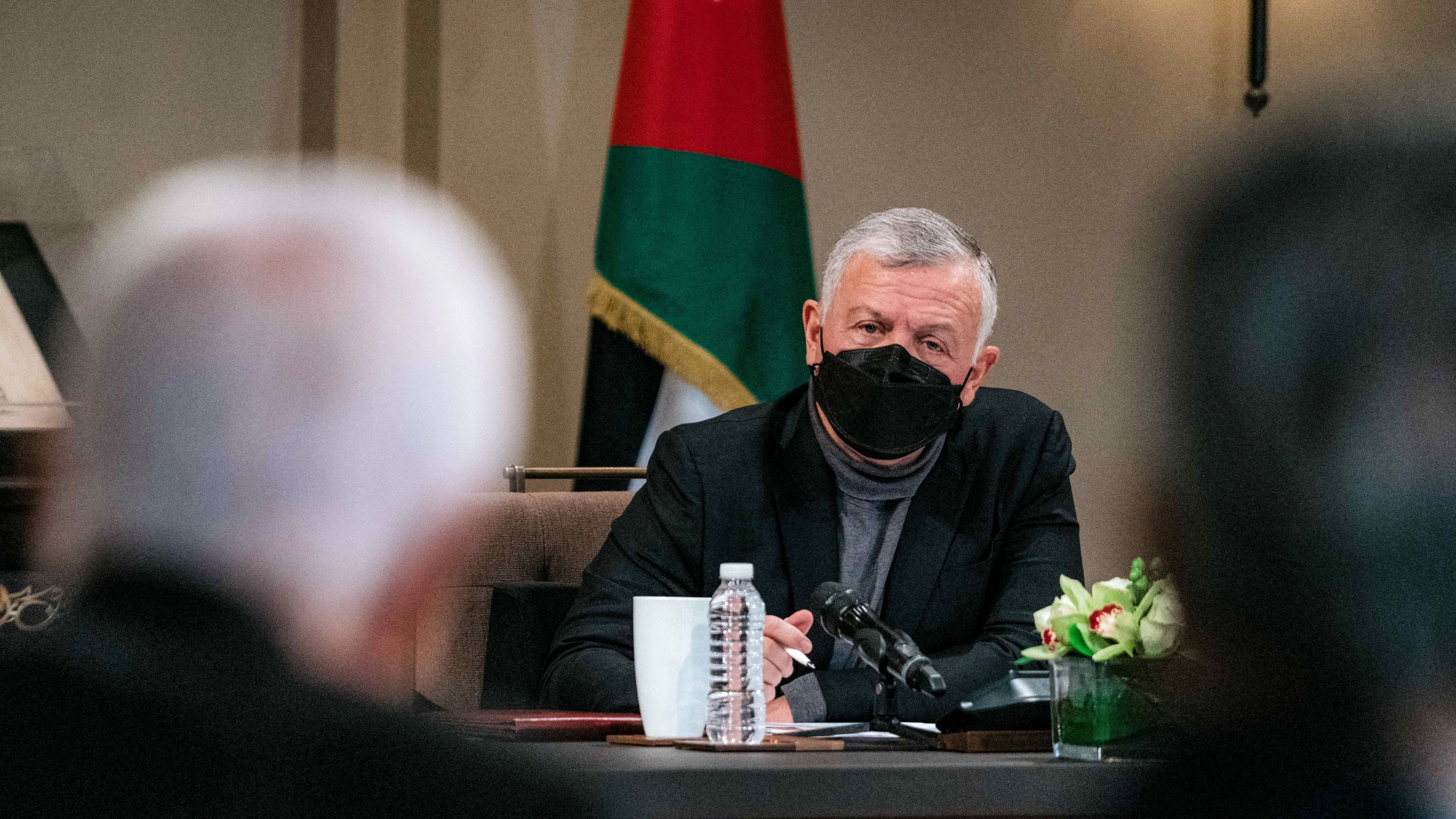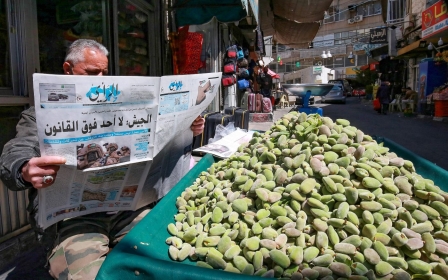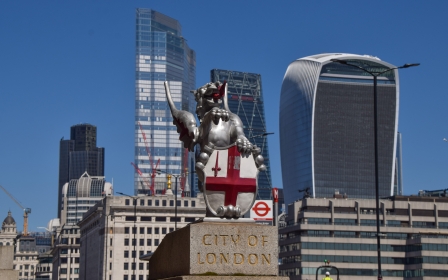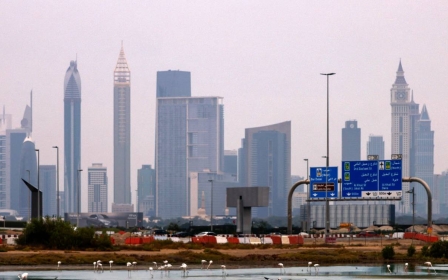Credit Suisse leaks: From King Abdullah to Mubarak's sons, the Middle Eastern figures involved

A whistleblower's leaking of information on thousands of accounts with the Swiss banking giant Credit Suisse has once again seen a raft of Middle Eastern political figures caught up in a major scandal revolving around hoarded wealth.
A range of media outlets was handed details of the "immoral" practices employed by the company - as the whistleblower put it - revealing customers involved in a range of activities including drug trafficking, torture, corruption, and money laundering.
Credit Suisse said it "strongly rejects the allegations and inferences about the bank’s purported business practices" in response to the leak.
Around 18,000 bank accounts were revealed in the data, opened over decades and stuffed with hundreds of millions of francs.
Middle East Eye has taken a look at the regional figures who were outed as account owners by the new investigation.
New MEE newsletter: Jerusalem Dispatch
Sign up to get the latest insights and analysis on Israel-Palestine, alongside Turkey Unpacked and other MEE newsletters
King Abdullah and Queen Rania of Jordan
The ruling couple of the Kingdom of Jordan were enthusiastic customers of Credit Suisse, the data leak revealed. Abdullah has, since 2011, been the beneficiary of at least six accounts with the bank, while his wife Rania had at least one account as well.
One account was at one point worth at least 230m Swiss francs ($250m), while Rania is thought to have had an account worth at least 39.1 million Swiss francs ($42.66m).
In a statement to the Organized Crime and Corruption Reporting Project (OCCRP) the family's lawyers said the “relevant accounts are used for the acquisition of assets, investments, operational and personal expenses and general disbursements, including the funding of certain royal initiatives” and that the pair had "never extracted, in any manner, funds from the Treasury, public assets, international assistance or government budget to accounts situated abroad or for his personal enrichment".
Following the leak, the Royal Court released a statement accusing the investigation of including "inaccuracies, and outdated and misleading information" which were aimed at "defaming Jordan and His Majesty, as well as distorting the truth".
Gamal and Alaa Mubarak
Gamal and Alaa Mubarak, the sons of late Egyptian autocrat Hosni Mubarak, ousted in 2011 by the Egyptian revolution, had a maximum balance of over 277 million Swiss francs ($302m) in Credit Suisse accounts.
One account allegedly belonging to Alaa had amassed 232m Swiss francs (around $253m) by 2010.
Lawyers for the pair told OCCRP that neither Swiss nor Egyptian investigations had found any evidence of suspicious activity in their accounts.
Omar Suleiman
Relatives of Omar Suleiman, Mubarak's notorious former intelligence chief, opened a joint account with Credit Suisse in 2003 whose balance reached $52m a few years later, which remained open after his death. Another account was open between 1996-2005.
Suleiman, who died in 2012, was notable for overseeing torture of opposition figures. He was later appointed vice president of Egypt just before Mubarak was ousted.
The reporting project tried to reach his family for comment but were unsuccessful.
Abdelaziz Bouteflika
Abdelaziz Bouteflika, the late former ruler of Algeria, who was ousted in 2019 following months of anti-government protests, shared an account with a number of relatives that held $1.1m in 2005, the leaked data showed.
His rule of the country since 1999 saw repression of civil liberties and a crackdown on opposition parties, while his government was denounced as "corrupt to the bone" by anti-government protesters.
Samir Rifai
The name of the former prime minister of Jordan, Samir Rifai, who resigned following anti-government protests in 2011, appeared on multiple accounts, the leaked data showed.
Rifai, who was repeatedly accused of corruption by democracy activists, told OCCRP that he could “totally, unequivocally, and utterly” rule out any illicit sources for the money in the accounts, some of which were jointly held with family members.
The funds in one account, with a maximum balance worth over 12 million Swiss francs ($13.1m), were his wife’s, he said.
Abdul Halim Khaddam
Khaddam held a number of roles in Syria under longtime President Hafez al-Assad, whose iron-fisted rule of the country saw widespread use of torture and state violence to repress dissent, as well as rampant corruption.
At various points a foreign minister and vice president, Khaddam helped oversee the Syrian occupation of Lebanon which ended in 2005 after protests.
The data leak showed that he had an account opened between 1994-2006 with a maximum balance of 89.7 million Swiss franc ($98m).
Sultan Qaboos bin Said Al Said
The late Sultan of Oman and the region’s longest-serving leader at the time of his death in 2020, had two Credit Suisse accounts, one holding nearly $126m in 2003 and another holding $57m in 2015.
Qaboos oversaw the transformation of his country from a deeply impoverished and underinvested nation into a regional power over several decades, but he held a tight grip on the reigns of government, allowing little or no opposition and monopolising wealth within the royal family and its associates.
Hussein Salem
An Egyptian tycoon - who was another of Mubarak's close associates - he had several accounts with Credit Suisse, with one by 2003 holding assets worth 105 million Swiss francs ($79.3m).
This article is available in French on Middle East Eye French edition.
Middle East Eye delivers independent and unrivalled coverage and analysis of the Middle East, North Africa and beyond. To learn more about republishing this content and the associated fees, please fill out this form. More about MEE can be found here.




